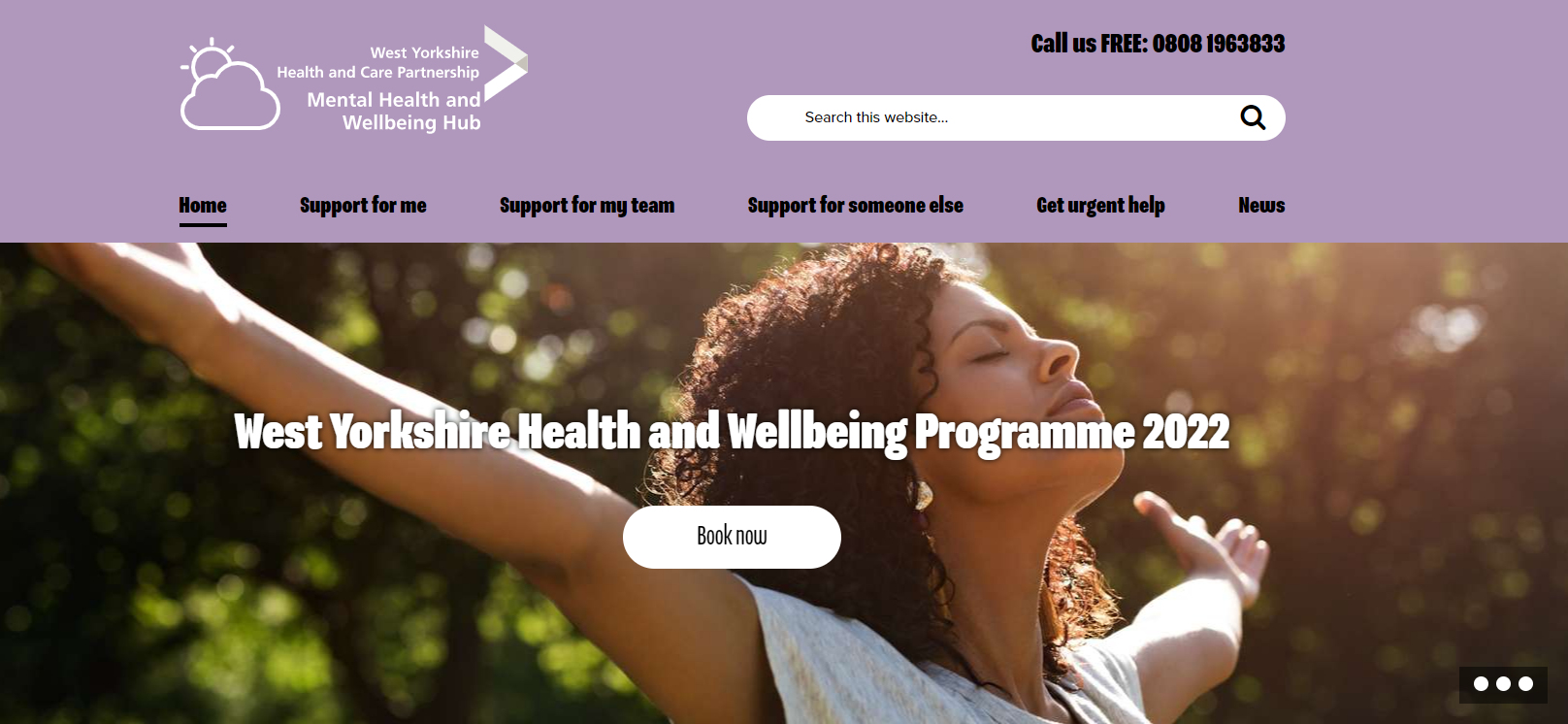Posted on: 18 March 2022
 Hello I’m Kersten England.
Hello I’m Kersten England.
For those who don’t know me I am privileged to be the Chief Executive of Bradford Council which is a member of the Bradford and Craven Health and Care Partnership which in turn, is part of the West Yorkshire Health and Care Partnership.
As we finally emerge from the pandemic to something closer to normality, there is much that we can be proud of in our collective endeavours working across systems, organisations and communities to keep people safe, informed and protected and to ensure that they have the support and care that they need. The effort has been nothing short of phenomenal, the commitment, skill and resilience shown by staff unparalleled.
Bradford has frequently lead the way in tackling COVID and its impact. For example, we established our Covid Scientific Advisory Group (CSAG) that truly demonstrated the power of research and community insight to deliver effective interventions that are community-centred. This really was research that helped protect our city. Colleagues from our research centres of excellence continued to carry out and implement other behavioural health interventions such as using Islamic religious settings for health promotion including tackling obesity.
I’m passionate about tackling inequality and we must seize this opportunity to build a just and fair recovery. Our community-centred, data driven and insight-led approach is helping to develop our Living Well movement for change and driving our work on reducing inequalities in our communities programme. Last week Professor Chris Whitty joined us to learn about our evidence based approach to tackling air pollution which means that children living near busy roads in Bradford can now walk to school and play out without breathing in unacceptable levels of pollution. Meanwhile we are in the early stages of exciting plans that could see us establish an inequalities alliance working closely with West Yorkshire partners.

Of course as we inch our way out of one crisis, the world finds itself facing another one as war in Ukraine inflicts untold suffering, damage and fear, and breeds international insecurity and instability. Sadly, we know only too well that this is not the only global flashpoint for extreme levels of violence and conflict. Nevertheless, we should take comfort and inspiration from the humanitarian response and the lengths that people are willing to go to in order to reach out and help others.
Bradford itself takes pride in its place as a leader and pioneer for peace and sanctuary. Home to the UK’s only Peace Museum and first University Peace Studies Department, we were among the first UK cities to become a City of Sanctuary. We have a long standing tradition of welcoming those fleeing violence and persecution, indeed many members of our original Ukrainian community arrived here as displaced persons following World War Two. More recently, Bradford was one of the first places to greet Syrian refugees and has provided a new home and refuge for Rohingya people and for new arrivals from Afghanistan. We will continue to play our part to extend our hand of compassion and kindness and while we do so we must ensure that we do not forget other victims of conflict nor the impact on our Russian colleagues and neighbours.
Pandemic and war have hugely harrowing and distressing consequences for vast numbers of people and it follows that we will see growing numbers of people who have been traumatised as a result of these events. As the CEO lead for the West Yorkshire Health and Care Partnership for adversity, trauma and resilience it’s my job to build the system leadership and partnership working that will make sure that our culture and practice recognises and is informed by trauma to help strengthen treatment and improve outcomes.
The focus for our work in West Yorkshire is on how traumatic events, often but not always in our early years, can have a negative impact in later years on our physical and mental health and with increased risk of illnesses. In Bradford we’re working to become a child friendly District and when we talk about trauma and adversity in our local context it ranges from experiences of physical, psychological or sexual abuse during childhood either directly towards the child or being a witness to this at home. Other life events that can impact on people start before birth and can continue into adult life such as the violence directed towards women and girls, racism and other examples of discriminatory behaviour through to being a victim or indeed a perpetrator of violent crime.
That’s why joined up working and the development of trusted compassionate services from preconception through to adult life can radically reduce risk and lead to better resilience and outcomes.
Working in partnership gives us the opportunity to better address challenging issues but also to take the opportunity to maximise the positive impact of our assets. Take Bradford’s bid for City of Culture 2025, which has galvanised action and collaboration across a range of sectors and organisations and the entirety of our very diverse District. That effort has seen us reach the final list of eight from which the judges will select a winner. Bradford’s bid is strong and the impact of arts and culture on health is a fundamental principle of our approach. Of course we want to win but the process itself is building a legacy of renewed confidence, increased participation and widespread celebration of our creativity and spirit.
So the power of partnership is the key to success in pretty much all that we do, whether that be improving health, securing better incomes and jobs, building child friendly places, promoting culture or tackling trauma. I often talk about 'Team Bradford' – the collective effort to deliver for our District and across Bradford and Craven we are proud to 'act as one' in the knowledge that by working together we can achieve far more than we will ever do alone.
Thanks for reading and have a good weekend
Kersten
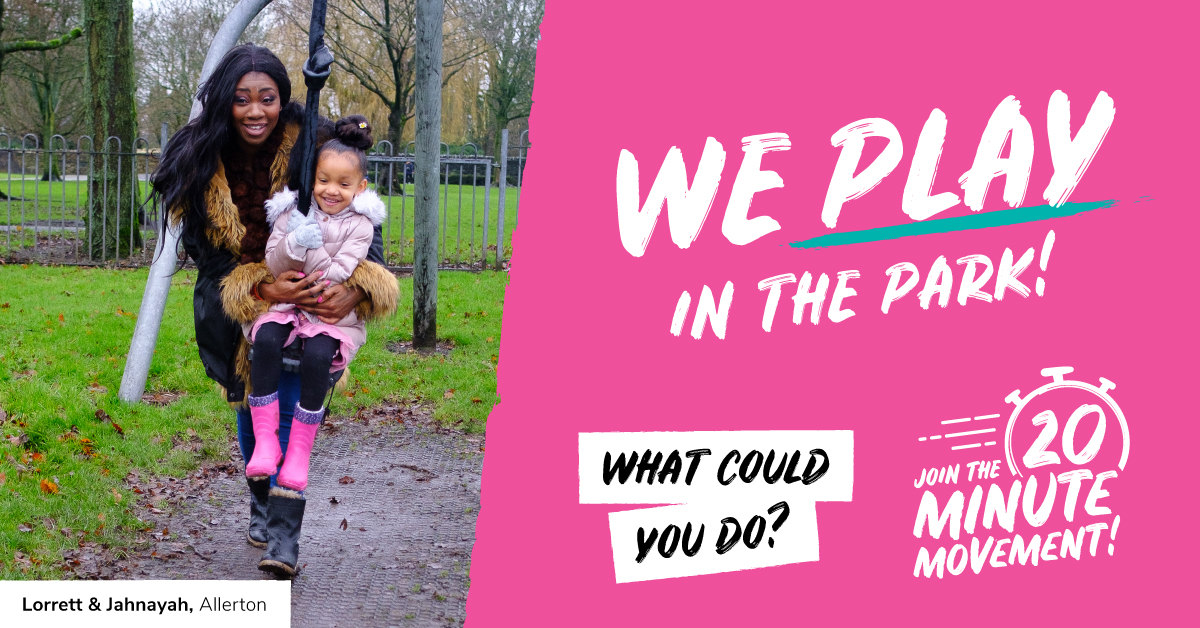
What else has been happening this week?
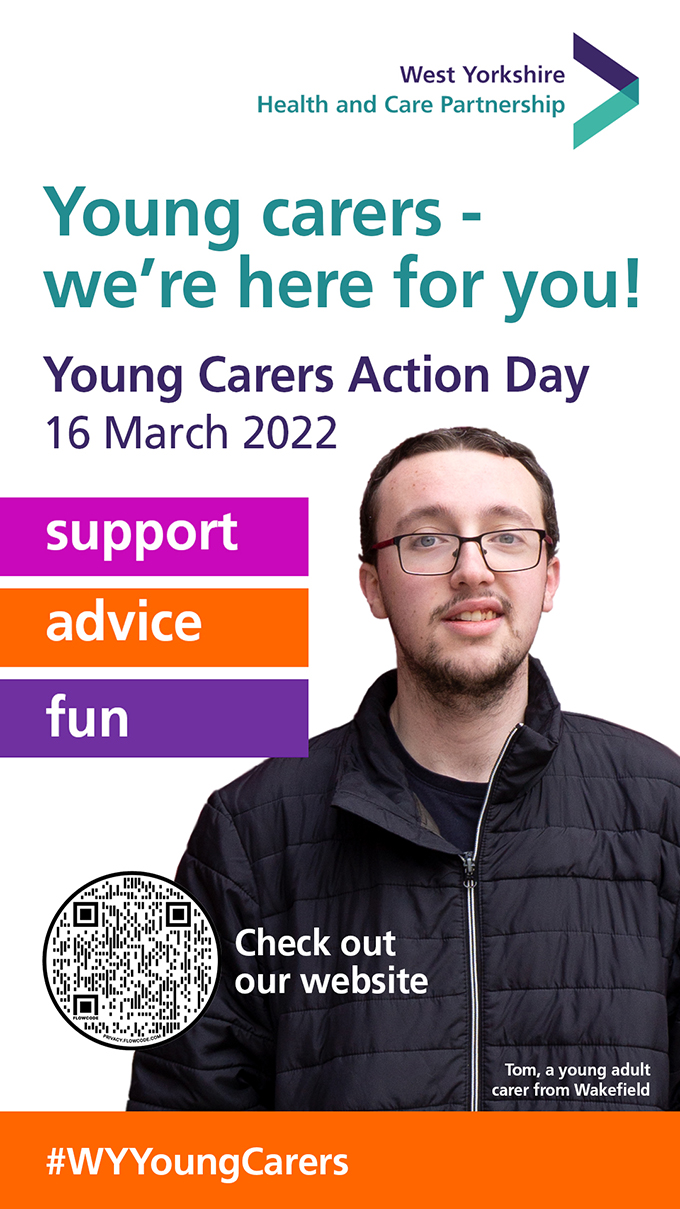 Young Carers Action Day 2022
Young Carers Action Day 2022
Young Carers Action Day is a day to recognise and thank young carers for the incredible contribution and sacrifice they make. On Wednesday 16 March the unpaid carers programme championed this day and did a Twitter takeover of @WYpartnership and @WeNurses. These accounts alone helped us to reach over 115, 000 people.
This year's campaign focused on taking action on the isolation experienced by young carers and young adult carers. Our campaign and resources were co-produced with Wakefield Young Carers Youth Forum and you can find all the resources from the day on the Supporting Carers section of our website. We are committed to supporting young carers and use Young Carers Action Day 2022 to raise awareness of young carers and the people, services, systems across West Yorkshire. Thank you to all colleagues and partners for their support and sharing messages on the day of action.
A big thank you to West Yorkshire young carers for what they do every day and for working together to develop things that make a difference - "we're here for you". For more information contact: fiona.
The main image at the top of this week's update features young adult carer Tom with Fiona Rogers, the Partnership’s Young Carers Project Co-Ordinator, alongside the Young Carers Action Day billboard poster in The Ridings, Wakefield. There's more about this year's Young Carers Action Day, and the young adult carers who worked with us on the campaign, in this case study.
Inclusion, innovation and improvement hub
The Inclusive Innovation and Improvement Board met last week with a full agenda, and were joined by colleagues across the system to deliver key updates on programmes currently being delivered across West Yorkshire. An integral part of the Inclusive Innovation and Improvement Board is to ensure that patients and the public are at the heart of all that we do, and the Board were thrilled to have Anita Cullimore, Clinical Lead for Continence Services at Locala Health and Wellbeing join the meeting to share an example of utilisation of resource to support patients’ independence.
Next on the agenda was the first socialisation of the upcoming Healthtech Strategy from Stephanie Oliver-Beech and her team, which was warmly welcomed by the group. Amy Overend, the newly appointed Innovation Hub Director for West Yorkshire Health and Care Partnership, led the Board through an overview of work being delivered across the system as well as the upcoming Innovation Audit programme of work that will be commenced shortly across the West Yorkshire system.
The Board were also joined by Catherine Hughes, the new Innovation Hub lead for Bradford, who talked through the health foundation funded Innovation hub that is working in partnership with the Act as One initiative in Bradford in conjunction with Bradford University. Roz Davies’ team provided an update on the development of the Inclusive Innovation and Improvement Board inclusive design principles and will provide further updates to the board in future meetings. Prof Chris Gale and his colleague Dr Ramesh Nadarajah presented their ‘FIND-AF’ work to the group and there was a lot of enthusiasm for this piece of upcoming innovation.
Sally Bridges from Yorkshire and Humber Applied Research Centre (ARC) discussed the upcoming first meeting of the West Yorkshire Health and Care Partnership research leadership working group and how this group will work closely with the upcoming innovation audit. Finally; Kate Lodge from Leeds Academic Health Partnership provided an update on their three key priorities and how these are reflected in the refreshed mission and ambition for the partnership.
Helen Hirst appointed Chair of Calderdale and Huddersfield NHS Foundation Trust Board
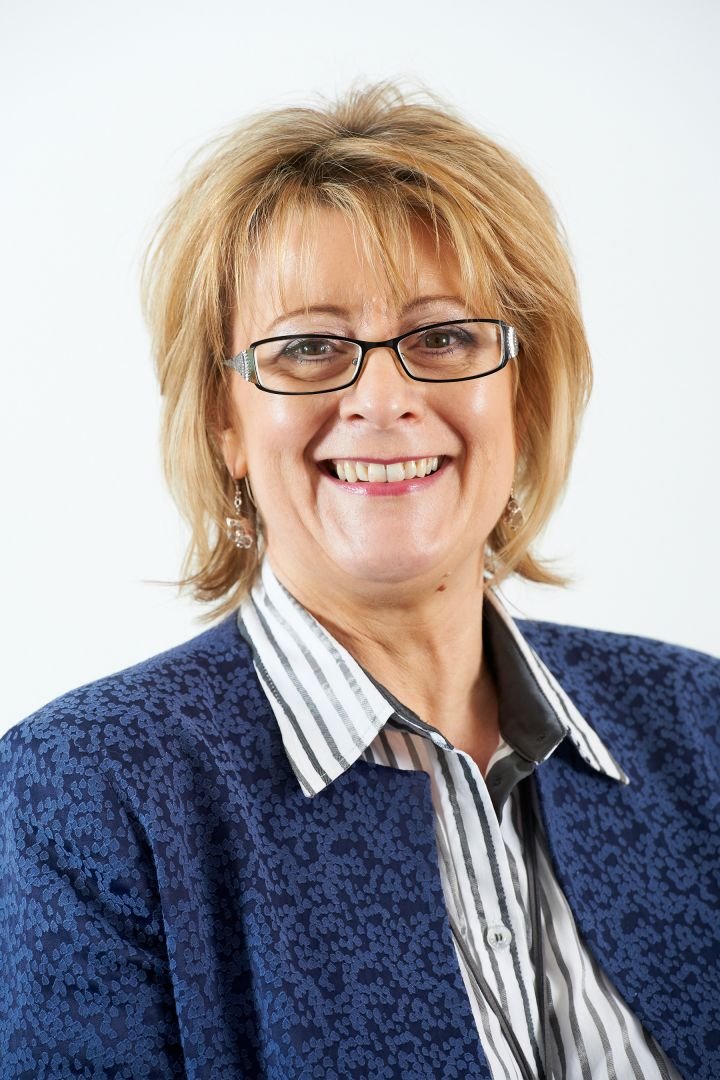 Calderdale and Huddersfield NHS Foundation Trust have announced Helen Hirst as the new Chair of their Trust Board.
Calderdale and Huddersfield NHS Foundation Trust have announced Helen Hirst as the new Chair of their Trust Board.
Helen has spent the majority of her career in the NHS in senior management roles and is currently the Accountable Officer at Bradford District and Craven CCG. Helen has significant expertise in developing strategic partnerships and holds several lead roles across the West Yorkshire Health and Care Partnership. She is the Vice-Chair at Wakefield Hospice and a Board Member at Staying Put, a domestic abuse and sexual violence charity. Helen is also a long-standing local resident of Kirklees, as are her family, which has further driven her application to join us as Chair and be part of the leadership team of the Trust overseeing the development of its strategy and ensuring we provide the best experience for our patients, and the communities we serve.
Helen said “I am delighted to be appointed as Chair of the Trust Board. I am excited to be working with colleagues, governors, partners and local people to deliver the highest quality compassionate care for the people of Calderdale and Huddersfield.”
Philip Lewer will remain as Chair whilst Helen completes her tenure at Bradford District and Craven,and will retire as the Trust Chair at the end of June. Helen will take up the role from 1st July 2022.
Mental Health, Learning Disability and Autism
 The Mental Health, Learning Disability and Autism Programme Board met on Tuesday 8 March. Chair Dr Sara Munro thanked Helen Hirst for her work in the Programme and at Place as Vice-Chair and Commissioning Lead as she moves on to a new role as Chair of Calderdale and Huddersfield NHS Foundation Trust.
The Mental Health, Learning Disability and Autism Programme Board met on Tuesday 8 March. Chair Dr Sara Munro thanked Helen Hirst for her work in the Programme and at Place as Vice-Chair and Commissioning Lead as she moves on to a new role as Chair of Calderdale and Huddersfield NHS Foundation Trust.
Place-based roles and the contribution of VCSE organisations are becoming increasingly important to supporting the work and decision-making of the Programme board, as we focus on improving diversity and widening participation. The Board agreed the Terms of Reference for this way of working as we transition to ICB arrangements, and we will keep this under review.
The situation in Ukraine has raised some specific risks that our West Yorkshire system will come together review and address with mitigations where possible. These include the threat of cyber-attacks, energy supply challenges, supporting staff impacted by the situation and more.
Planning and performance data is under discussion with NHS England. As a system we are interested in how we map against others, what are the common challenges and how we can align with other systems to collectively describe what support we need from the center.
The Board received a presentation from Yorkshire Ambulance Service (YAS) about the work of the YAS mental health programme. The programme has benefited from engagement, shared ownership and co-production to deliver work on rotational Mental Health nurses in the Emergency Operations Centre, upskilling of YAS staff and preparation for piloting in West Yorkshire of a Mental Health Response Vehicle.
Next steps with the Ethnic Minority Review – the Programme Board was asked to support the establishment of a FY22/23 workplan to tackle health inequalities for Black, Asian and minority ethnic communities and colleagues that will include:
- strengthening the sharing of good practice through close engagement between the Public Health consultant and the Health Inequalities Academy
- continuation of work between HR teams in the MHLDA collaborative on employment policies and discrimination panels
- developing the Community Mental Health Inequalities Framework
- improving our focus on cultural competence and culturally equitable practice and service delivery, specifically within the Staff Wellbeing Hub, strengthening Peer Support Worker diversity and commencing a programme of training for staff
- building on good early work in diversifying recruitment avenues and seeking to role model this in our own programme recruitment practices
- comparing, contrasting and seeking consistency in how our services collect equalities data and agreeing how this should be used, in a consistent way by all services.
Menopause podcast
We’re grateful to a team of fantastic women, Amy Tatham, Dr Anne Connolly and Laila Ahmed, who came together to record a podcast about menopause as part of our We Work Together series.
Next VFair
Our next virtual recruitment fairs are taking place on 7 April and 30 June. The April event is, for the first time, a hiring event, where candidates introduced by Indeed having their interviews online at the Fair. A digital communications ad campaign is in development targeting young people, returners and others for Healthcare Support Worker roles, apprenticeships and other entry-level roles in health and social care, specifically in Mental Health, Learning Disabilities and Autism. We are also looking at the 'volunteer to carer career' approach.
Using technology to help diagnose ADHD
In partnership with the University of Huddersfield and support from Kirklees and Wakefield CCGs, NHS South West Yorkshire Partnership Foundation Trust has developed an AI based tool to support the diagnosis of ADHD. To find out more colleagues can attend this free seminar Artificial Intelligence Enabled Diagnostics for Adult ADHD Tickets, Mon 28 Mar 2022 at 12:00 | Eventbrite
Updates and offers from the Staff Mental Health and Wellbeing Hub
We are pleased that our waiting list initiative is showing signs of success – waiting times for one-to-one therapy are now down from 10 to four weeks and we expect to be at two weeks or better very soon.
Relationship counselling offer - We are now able to offer relationship counselling as part of our therapy offer in partnership with Leeds/ Bradford Relate. If your relationship has been impacted by work this service is for you and can be accessed through the Hub self-referral process. We also accept referrals from Occupational Health colleagues within West Yorkshire partner organisations. Please share with your networks if helpful.
Hub website
The Staff Mental Health and Wellbeing Hub website has had a facelift and work continues on making our resources as easy to navigate as possible. Visit www.wystaffwellbeinghub.co.uk to access support now.
Supporting the people of Ukraine
The Association of Ukrainians in Great Britain has branches in Keighley, Halifax, Huddersfield, Bradford and Leeds. Please share with people who may need support.
Improving Population Health Programme Board
 The Improving Population Health Programme Board met on Friday, 11 March. Board members were updated around the development of a Fair Work Charter for West Yorkshire and a public consultation exercise being carried out around what employers need to offer in terms of fair work -focusing on opportunity, security, wellbeing, employee voice and fulfilment. The consultation exercise closes on 22 April.
The Improving Population Health Programme Board met on Friday, 11 March. Board members were updated around the development of a Fair Work Charter for West Yorkshire and a public consultation exercise being carried out around what employers need to offer in terms of fair work -focusing on opportunity, security, wellbeing, employee voice and fulfilment. The consultation exercise closes on 22 April.
As part of the 2022/23 system allocation, West Yorkshire has been allocated over £10million to support targeted reductions in health inequalities. Board members agreed proposals for allocating the resource aligned with reducing inequalities based on local population needs and linked to the CORE20Plus5 approach.
Since the Board last met we have appointed 32 Health Equity Fellows to support our work to tackle health inequalities and make West Yorkshire an equity-informed system. Fellows will work on projects to reduce inequalities in population health and are being linked with local public health mentors to help embed learning and generate cross-sector relationships.
We have produced a draft of our second annual report describing programme achievements over the last year. The annual report also provides an opportunity to reflect on current and future population health needs and identify where we are making an impact.
Members considered a proposition from the Universal Healthcare Network, a network of senior NHS and community leaders to help ensure everyone can access NHS healthcare when and where needed. Universal Healthcare has agreement in principle to work with Bradford in West Yorkshire and Hastings in Sussex. The Board agreed to support the resource allocation to support the Bradford element of the programme. Sussex Health and Care Partnership has secured funding for the same amount.
There were additional highlights from teams covering climate change, health and housing, health inequalities, population health management, prevention and reducing violent crime.
The Board is chaired by Dr James Thomas, Chair of Bradford District and Craven Clinical Commissioning Group and Robin Tuddenham, CEO for Calderdale Council and Chief Officer for Calderdale Commissioning. Dr James Thomas was also recently appointed as the NHS West Yorkshire Integrated Care Board (ICB) Medical Director, subject to Parliament confirming the statutory responsibilities of ICBs.
How to do virtual wards
 Introduced in response to Covid, NHSE now seek to increase the use of virtual wards so that more patients can be monitored and cared for in their own home with the help of remote treatment options and supported by technology.
Introduced in response to Covid, NHSE now seek to increase the use of virtual wards so that more patients can be monitored and cared for in their own home with the help of remote treatment options and supported by technology.
As part of its Power Hour series, the Institute of Health and Social Care Management (IHSCM), invited a panel of experts to discuss the possibilities. Their insights and experiences are summarised in a feedback report. Some learning points include making sure that virtual wards come with a workforce solution, are well-resourced, well-led, adapt a systems approach, multi-disciplinary, risk managed and run like a real ward.
The panel also discussed how virtual wards are not about saving money but about improving patient outcomes, for example, by reducing admissions and keeping patients safe and well. You can also catch up with a recording of the Power Hour session to find out more.
NHS Low Calorie Diet Programme now taking referrals
 Places are booking up fast for our two remaining one-hour training events on 24 March and 12 April to enable healthcare professionals to make referrals to the NHS Low Calorie Diet Programme. The events are aimed at GPs, nurses, practice diabetes leads and medicine management colleagues across West Yorkshire. We also encourage dieticians and anyone who does medication reviews to book onto one of the sessions.
Places are booking up fast for our two remaining one-hour training events on 24 March and 12 April to enable healthcare professionals to make referrals to the NHS Low Calorie Diet Programme. The events are aimed at GPs, nurses, practice diabetes leads and medicine management colleagues across West Yorkshire. We also encourage dieticians and anyone who does medication reviews to book onto one of the sessions.
Making diabetes referrals
Dr Waqas Tahir, the Clinical Diabetes Lead for the West Yorkshire Health and Care Partnership has recorded two videos aimed at fellow GPs to support our work to manage and prevent diabetes. In the first video Dr Tahir explains how to make referrals to the NHS Low Calorie Diet Programme being piloted in West Yorkshire and in the second to the NHS Diabetes Prevention Programme.
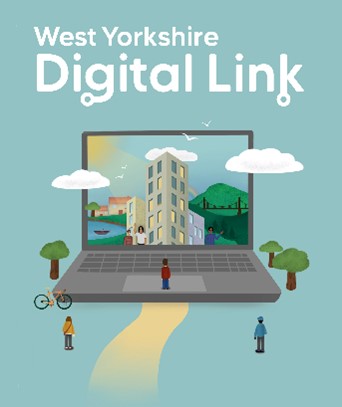 Our winner is….
Our winner is….
As part of our laptop gifting scheme we are repurposing devices and donating them to people in our local communities who need them most. We asked members of the public to help us choose a name for the initiative from a shortlist of three.
The votes are in, counted and verified and we can reveal the preferred name was Digital Link!
The scheme will work in partnership with the West Yorkshire Library Network. Thank you to everyone who voted.
Urgent and emergency care programme board update
 The urgent and emergency care programme board (UEC) met on Tuesday 15 March. Dr Adam Sheppard, Chair of the Board thanked current programme leads Pat Keane, Senior Responsible Officer (SRO) and Dr Dave Tatham, Clinical Lead, on the significant contribution they have both made as this was their final board meeting.
The urgent and emergency care programme board (UEC) met on Tuesday 15 March. Dr Adam Sheppard, Chair of the Board thanked current programme leads Pat Keane, Senior Responsible Officer (SRO) and Dr Dave Tatham, Clinical Lead, on the significant contribution they have both made as this was their final board meeting.
Board members discussed the West Yorkshire UEC function and transition to the new integrated care system arrangements. The board revisited and reaffirmed the role of the board in:
- Leading and overseeing transformation priorities where they meet one of the three tests of ICS working
- Creating a culture of mutual accountability and peer challenge and support
- Overseeing, monitor and co-ordinate the progress
- Providing a mechanism for joint action and joint decision-making for issues that are best tackled at scale
- Supporting the development of robust local partnership arrangements to deliver place-based plans with a clear understanding of what is being delivered at A&E Delivery Board/Place and what are the priority areas of work for the programme.
The Board also revisited the four key priority areas outlined in the West Yorkshire ICS 5 Year Plan and confirmed these remain our priority areas of work. These are:
- Access to unplanned health and care services
- Shifting care from unplanned care to planned care as well as early help in our communities
- Community urgent care
- Acute emergency care
Healthwatch Leeds have been commissioned to produce an insight report into the behaviours of young adults (aged 20-29 years) who are attending Emergency Departments. Once finalised it will be shared widely with stakeholders to identify any actions to be taken and we are anticipating these will be shared at the next Board meeting in May. Two workshops on improving access to Same Day Emergency Care have been arranged to agree a set of actions which can be delivered by April 2023 and a set of shared ambitions for the next five years. Board members were also updated on the progress of the West Yorkshire Non-Emergency Patient Transport Review, the West Yorkshire National Pathfinder pilot and the West Yorkshire patient discharge work.


